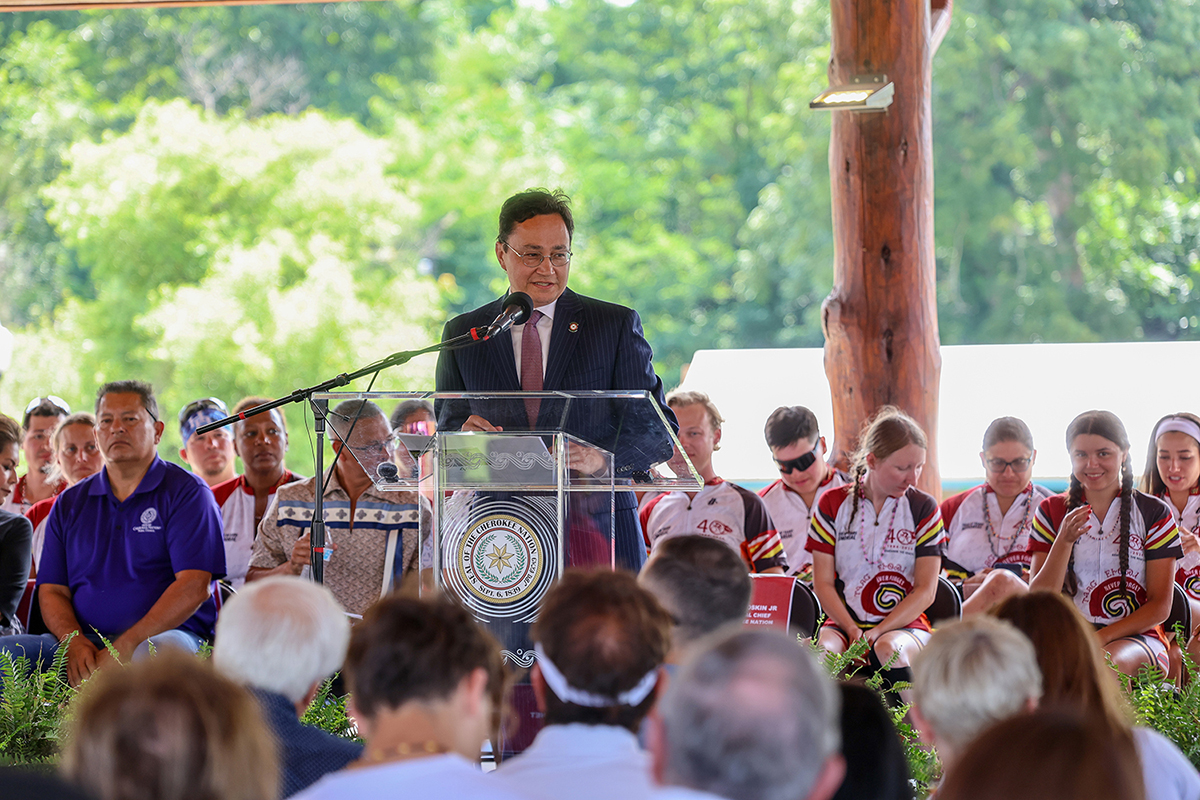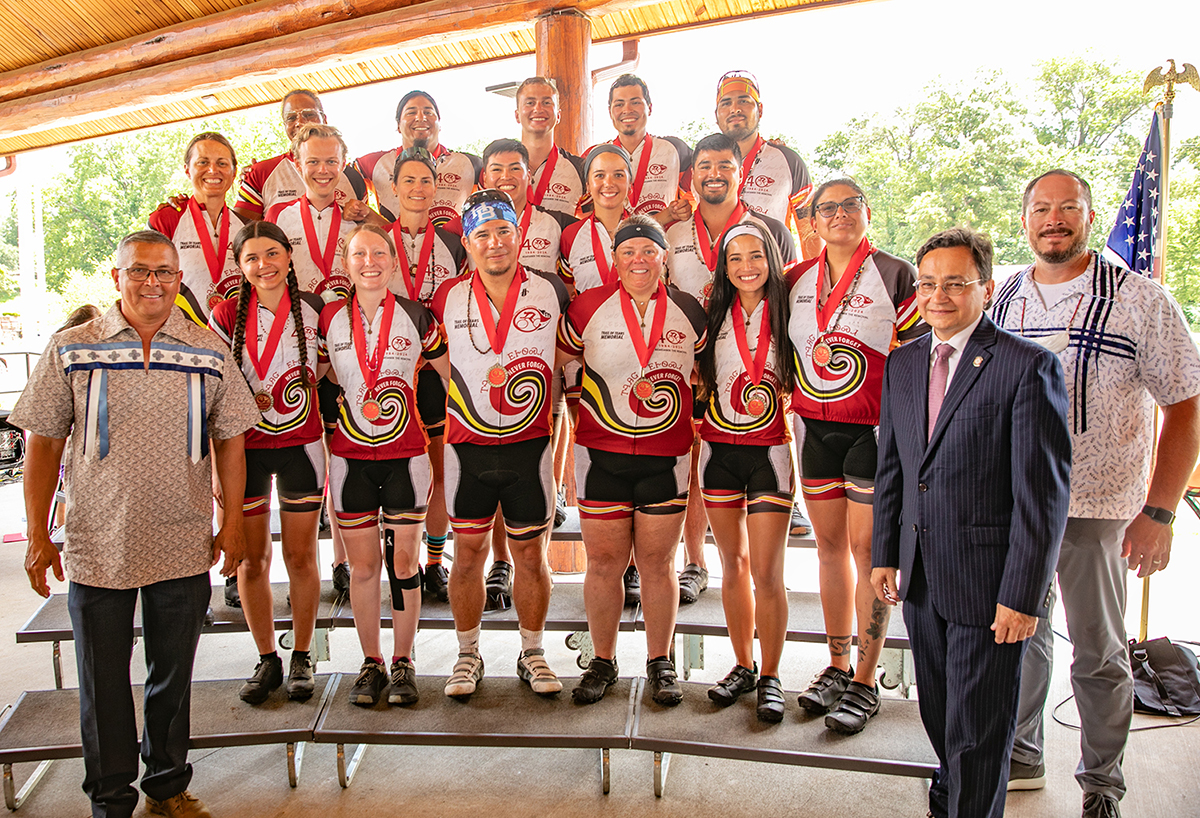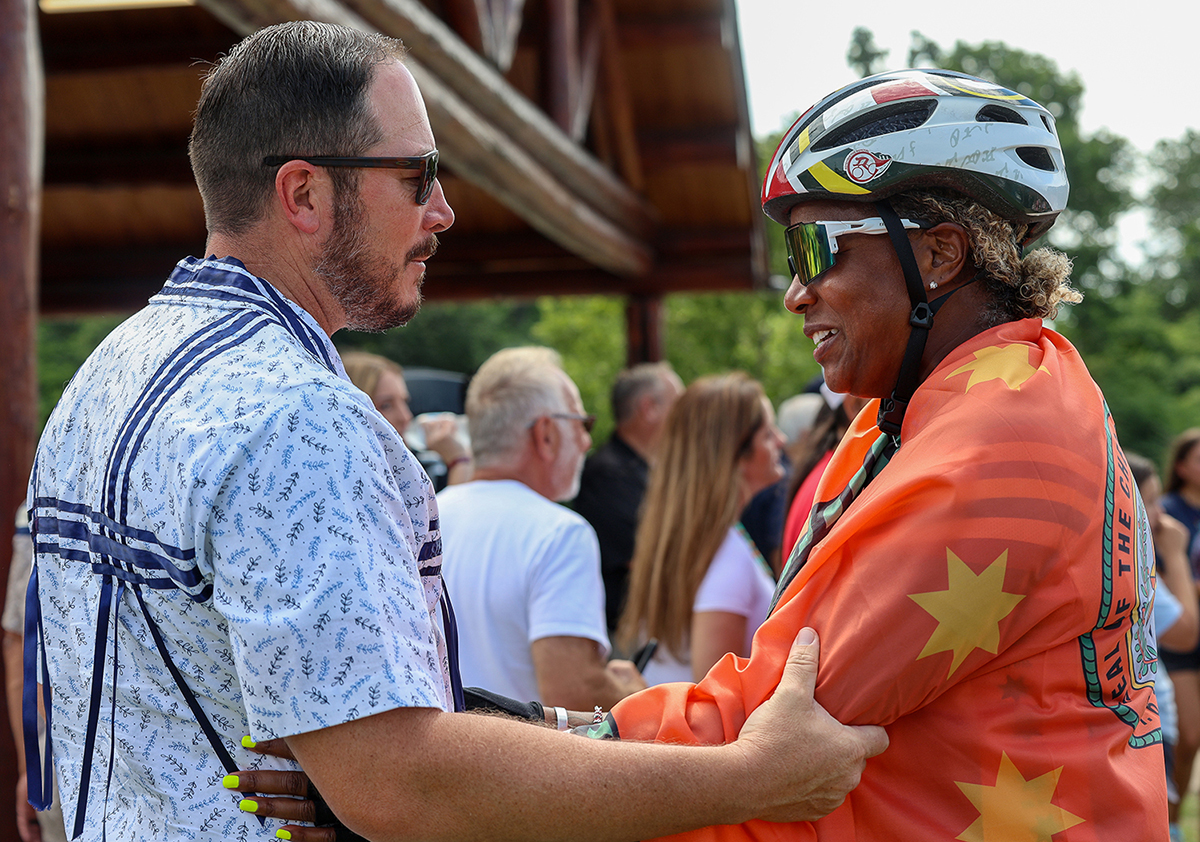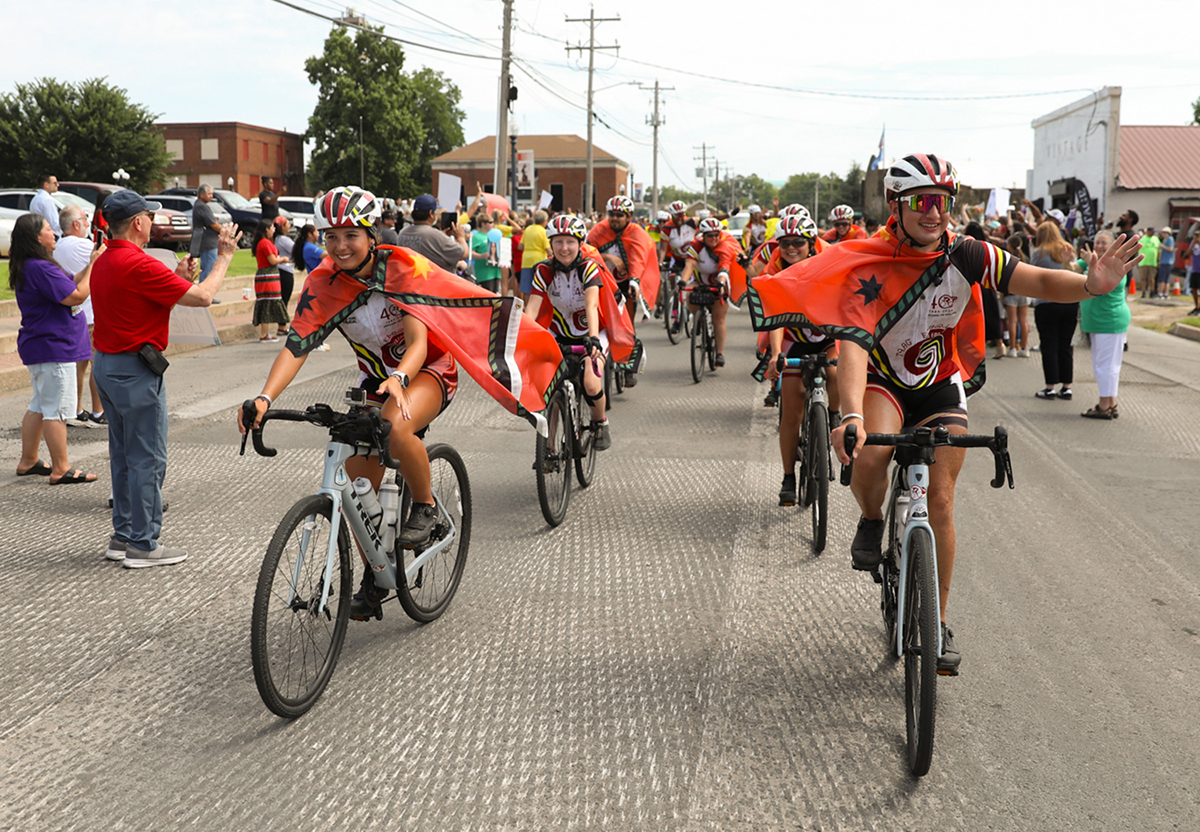TAHLEQUAH, Okla. — Ten Cherokee Nation bicyclists who were part of the 2024 Remember the Removal Bike Ride finished their 950-mile journey on Friday with a homecoming ceremony in the capital city of the Cherokee Nation.
During the trek, the cyclists retraced the northern route of the Trail of Tears in honor of their ancestors who were forcefully removed from their homelands in the southeast United States 185 years ago. They were also joined by seven cyclists from the Eastern Band of Cherokee Indians in North Carolina.
The cyclists began the memorial ride in New Echota, Georgia, and traveled through Georgia, Tennessee, Kentucky, Illinois, Missouri, Arkansas and Oklahoma before they were welcomed back at the Cherokee National Peace Pavilion in downtown Tahlequah on Friday.
“I’m so proud to celebrate this tremendous occasion once again,” said Cherokee Nation Principal Chief Chuck Hoskin Jr. “These cyclists are a testament to the strength and endurance of the Cherokee people. They have no doubt formed a bond as they learned about their proud past, glimpsed their ancestors’ darkest days, and discovered their own strengths. Understanding the sorrowful time in Cherokee history, when 16,000 of our ancestors were forced out of their homelands, gets more difficult to grasp with every year. But I am deeply grateful to the riders each year for their accomplishment on this journey, which truly honors the legacy of our ancestors.”

During their journey over the last three weeks, the cyclists visited historical sites significant to Cherokee history. Among the locations was Blythe Ferry in Tennessee, which is the last piece of Cherokee homeland that Cherokee ancestors stood on before beginning their forced trek to Indian Territory. Other stops included Mantle Rock in Kentucky, where Cherokee ancestors sought shelter as they waited for the Ohio River to thaw during a bitterly cold winter.
“We are so thankful for everyone’s return home,” said Cherokee Nation Deputy Principal Chief Bryan Warner. “These Remember the Removal Bike Ride cyclists have a bright future ahead of them. During any hardship they face, they will always have the opportunity to look back and remember the strength of our ancestors and their own perseverance through this experience.”
The ride tests both the physical and mental capabilities of the cyclists as they travel through rain, sunshine, heat and hilly terrain – sometimes pedaling up to 70 miles in a single day.

Cherokee Nation cyclists included Taylor Armbrister, 25, of Little Kansas; Shawna Baker, 46, of Tulsa; Jaslyn Christie, 19, of Park Hill; Camerin Fite James, 24, of Fort Gibson; Heather Fite, 46, of Fort Gibson; Jasmine Goodman, 24, of Fort Gibson; Ashawna Miles, 50, of Tahlequah; Hannah Neugin, 19, of Lost City; Kristy Ross, 49, of Locust Grove; and Jaxen Smith, 22, of Tahlequah.
Eastern Band cyclists include Noah Hicks, 27, of Painttown Community; Kristy Herron, 44, of Yellowhill Community; Nika West, 47, of Big Cove Community; Cassidy Galaviz, 29, of Snowbird Community; Josiah Lossiah, 23, of Painttown Community; Angelina Jumper, 27, of Snowbird Community; and Cruz Galaviz, 27, of Snowbird Community.
“This trip has been life-changing. It has been one of the best things I’ve ever done,” said cyclist Jaslyn Christie. “I’ve learned so much about my history, so much about my family, and about the Trail of Tears and the Removal. I will remember this ride forever and all the experiences that I’ve had with my teammates. I feel so fulfilled right now, so accomplished, and I’m so excited to see how this shapes my future.”
Mentor rider Ashawna Miles is the first Cherokee citizen of Freedmen descent to participate in the Remember the Removal Bike Ride.

“This has been a journey. I’m so excited to be able to take part in this. It has meant the world to me to be able to learn about our ancestors and, as I’ve said many, many times, to be able to walk the trails that they walked on; to feel, literally feel, the presence of your ancestors is something that you have to take in yourself,” Miles said. “The team has worked very well together. We’ve had our ups and downs but we overcame, just like our ancestors did. It’s just one big family, and that’s what we do.”
The ride’s inaugural event was held in 1984 to illustrate the hardships that Cherokee people faced, with 2024 serving as the 40th anniversary since the inaugural RTR.
It is estimated that 16,000 Cherokees were removed from Alabama, Georgia, Tennessee and North Carolina in the spring of 1838. Nearly 4,000 of them died during the roundup, incarceration and removal.

